Take a closer look at what the Nahrein Network achieved in 2021 - 2022, our first year of philanthropic funding
Annual Report, October 2021–September 2022
Find out about the reviewed and improved Research Grants Scheme, the work we carried out and funded, and the latest communications and media updates.
New Initiatives and Programme Updates
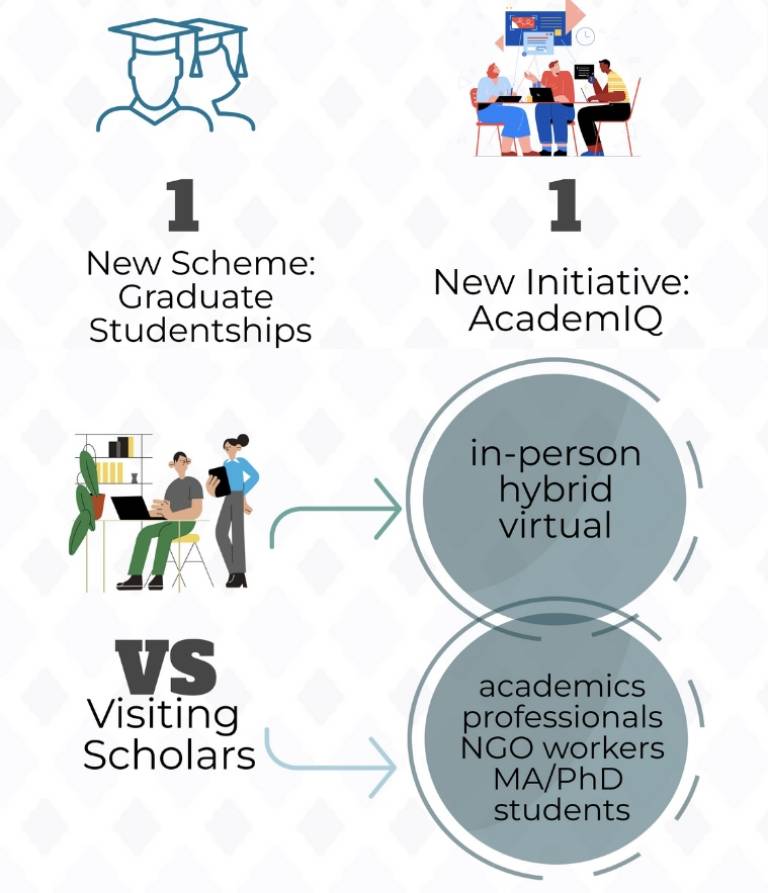
Research Grants Scheme
During the first year of the new funding, we undertook a major review of our governance procedures to ensure that they remained independent, fair and transparent. We made the Research Grants Scheme more accessible to applicants, less labour-intensive for the Network team, and more closely aligned with the rules and expectations of Iraqi Ministries. The scheme now funds 5–6 projects a year, of up to 48 months’ duration, with budgets in the range £10,000 – £100,000.
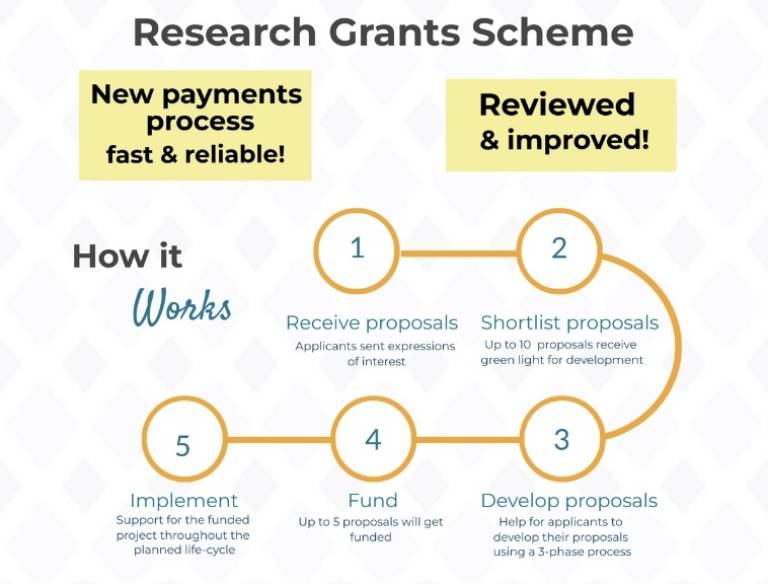
Graduate Studentship Scheme
The UCL Graduate Studentship fully funds one eligible applicant a year to undertake an MAor MSc at one of the participating UCL departments: Department of History, the Institute of Archaeology, or the Bartlett Institute for Sustainable Heritage. The scholarship covers full university tuition fees plus an annual maintenance grant and access to research funds. In 2021, our first awardee started an MSc in Sustainable Heritage at UCL. Students who successfully complete their Masters programme may continue to a funded PhD at UCL on a project related to the Nahrein Network’s aims.
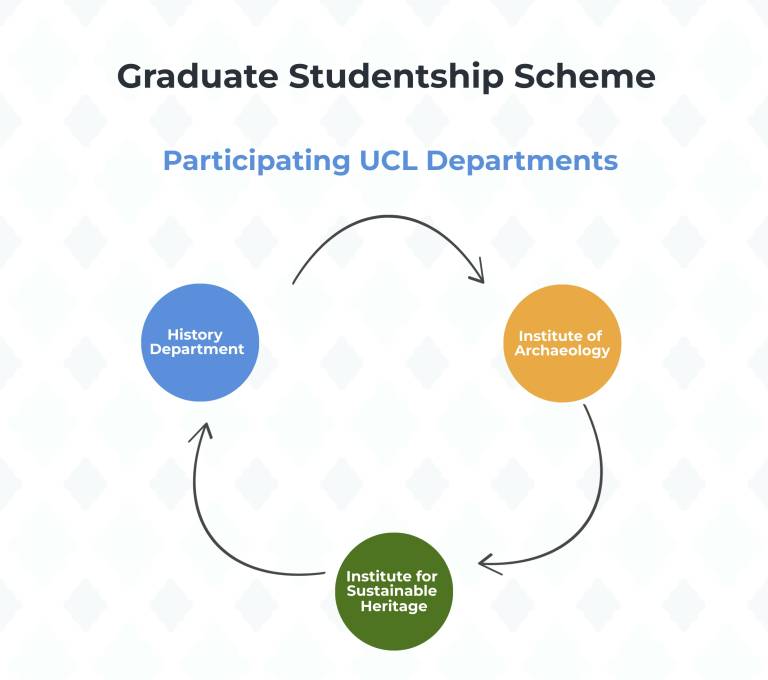
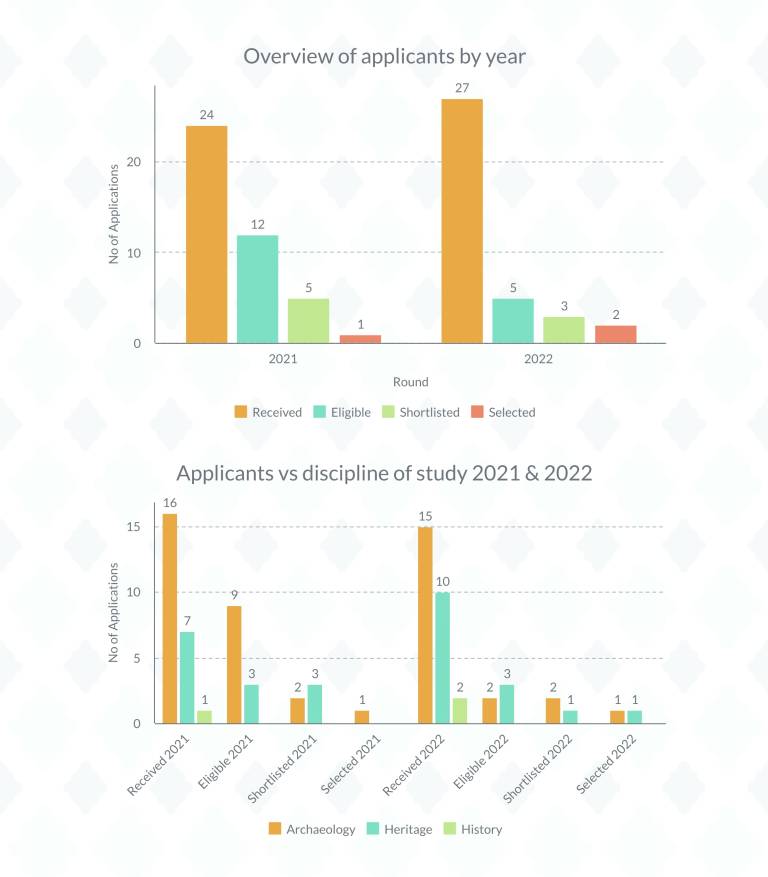
Visiting Scholarships Scheme
We made two important changes to the Visiting Scholarships Scheme, run jointly with the British Institute for the Study of Iraq. First, scholars can now take up hybrid or remote placements. Second, Iraqi graduate students are now also eligible to apply. These changes will increase accessibility and allow more women to benefit from the scheme.
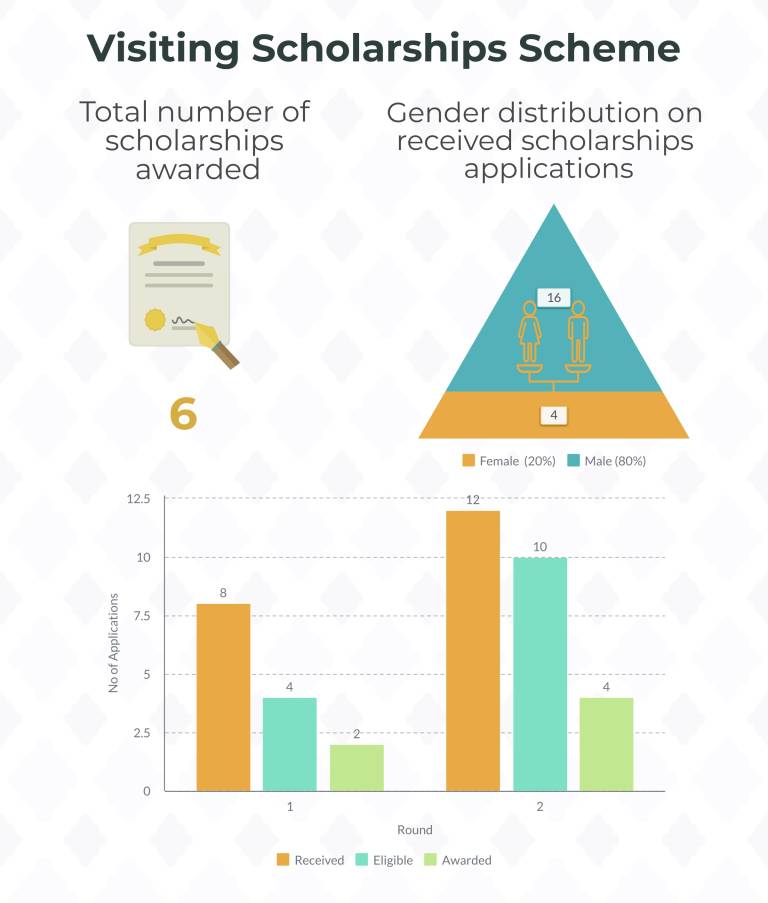
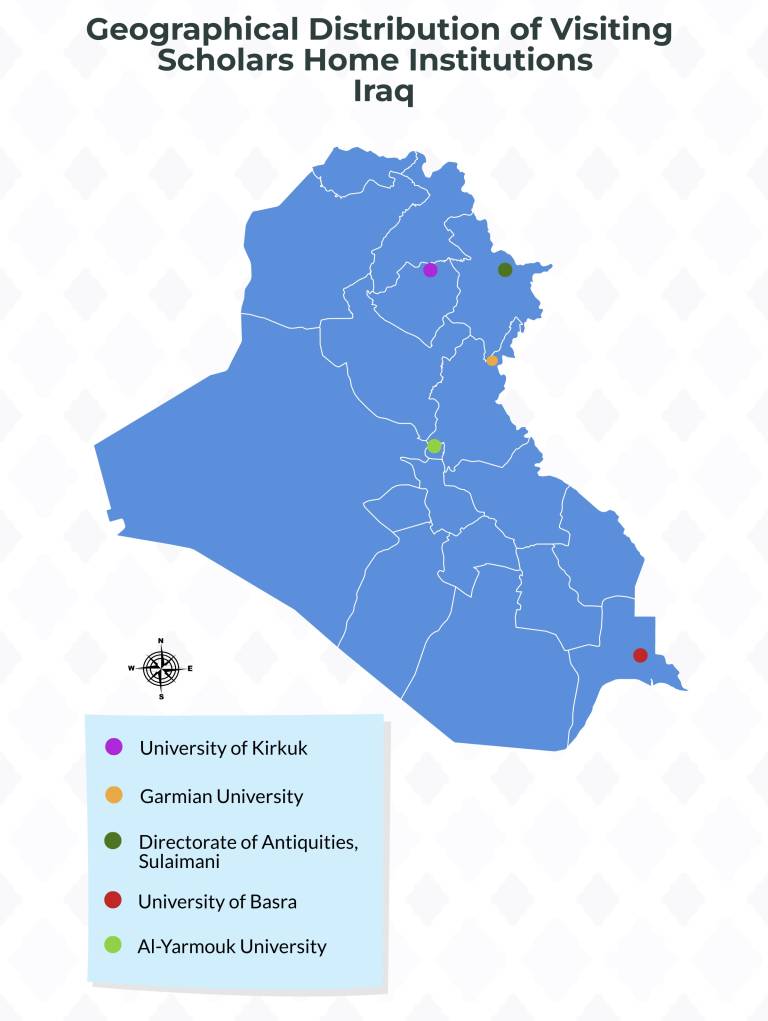
AcademIQ
AcademIQ, led by Dr Mehiyar Kathem, is a multi-year programme designed to support Iraqi researchers in the arts, humanities and social sciences with academic skills development. AcademIQ consists of online research courses, hosted for free on the platform UCL Extend; in-person academic writing workshops; and 1:1 academic mentoring. The first programmes launched in September 2022.
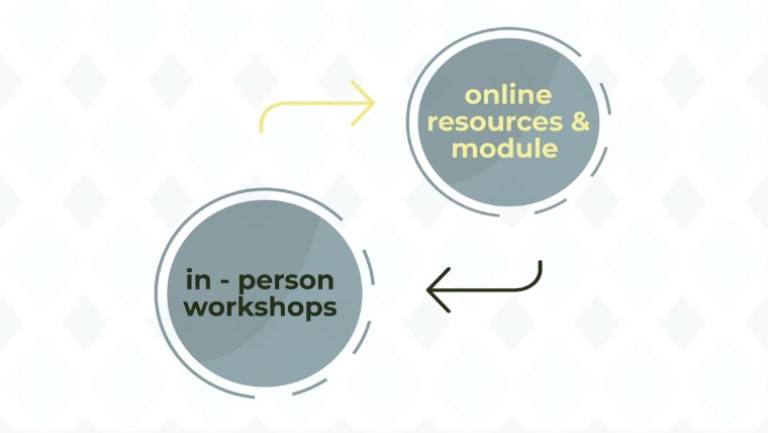
Academic Research Course
This free online course is hosted on the platform UCL Extend. It consists of 15 thematic units of 2–3 hours of independent study, released fortnightly fortnightly, offering conceptual insights, videos, readings, quizzes, and other activities.
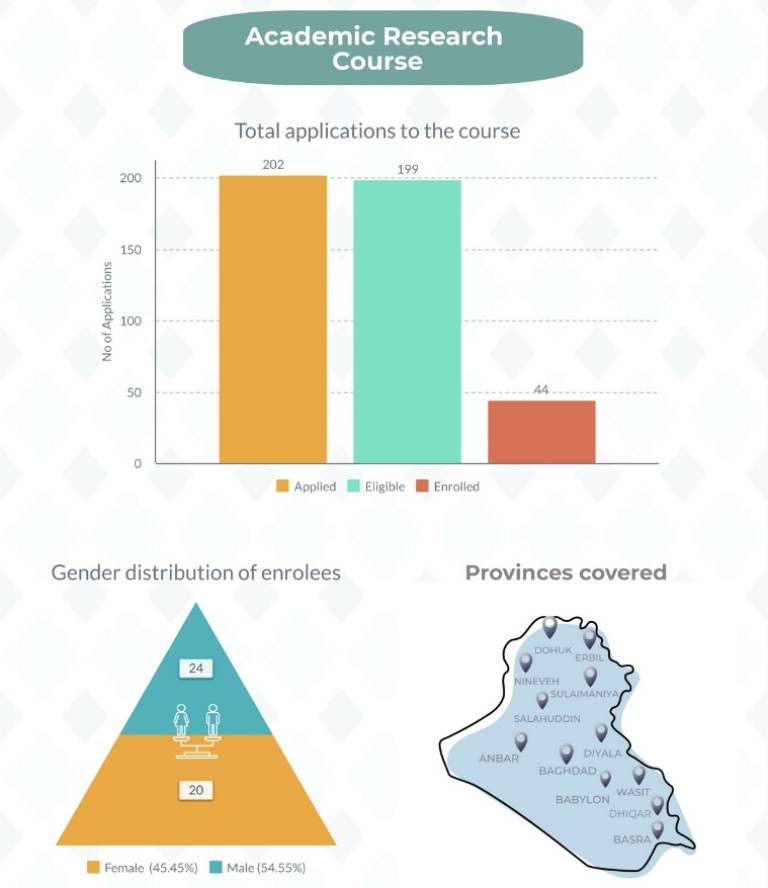
Academic Writing Workshops
This free training programme is designed and led by Dr Ersun Kurtulus, Associate Professor at the Department of International Relations, Social Sciences University of Ankara. It offers in-depth training and group-work support for up to ten Iraqi academics in the arts, humanities and social sciences, in research and academic writing. The first annual programme was advertised in summer 2022 and attracted 28 applications, ten of whom were offered places.
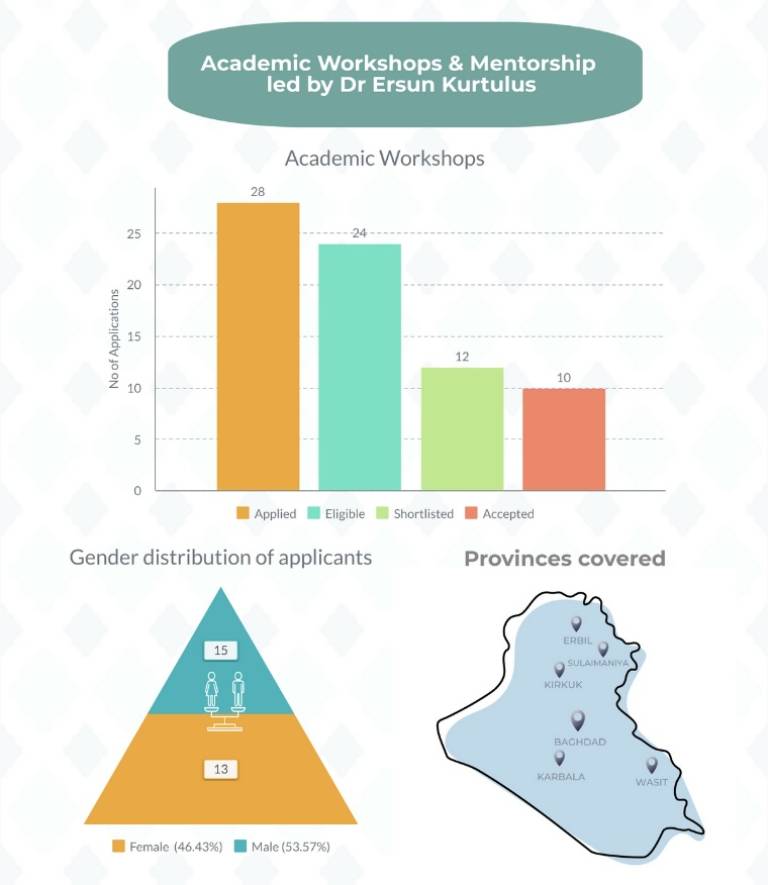
Core Team Research Projects
Cultural Heritage Organisation
In summer 2021, Nahrein Network Co-Director Dr Rozhen Mohammed-Amin reconstituted her Kurdish Digital Cultural Heritage Network as an NGO, named Cultural Heritage Organisation (CHO). It addresses the need for digital cultural heritage research and practice in Iraq, through three Work Packages.
- Impact assessments of mobile Augmented Reality apps that deliver immersive, emotive and empathetic responses to aspects of Iraq’s ‘difficult’ heritage, from the Mandate-era Serai Building in Sulaimani to the Yazidi genocide of 2017.
- The “Reconstruct Mesopotamia” virtual (online) annual internship program trains interdisciplinary teams across Iraq in digital cultural heritage reconstruction, preservation and interpretation of their cultural heritage.
- Monthly professional development workshops and webinars to cultural heritage professionals and scholars from local museums, libraries, NGOs, and universities.
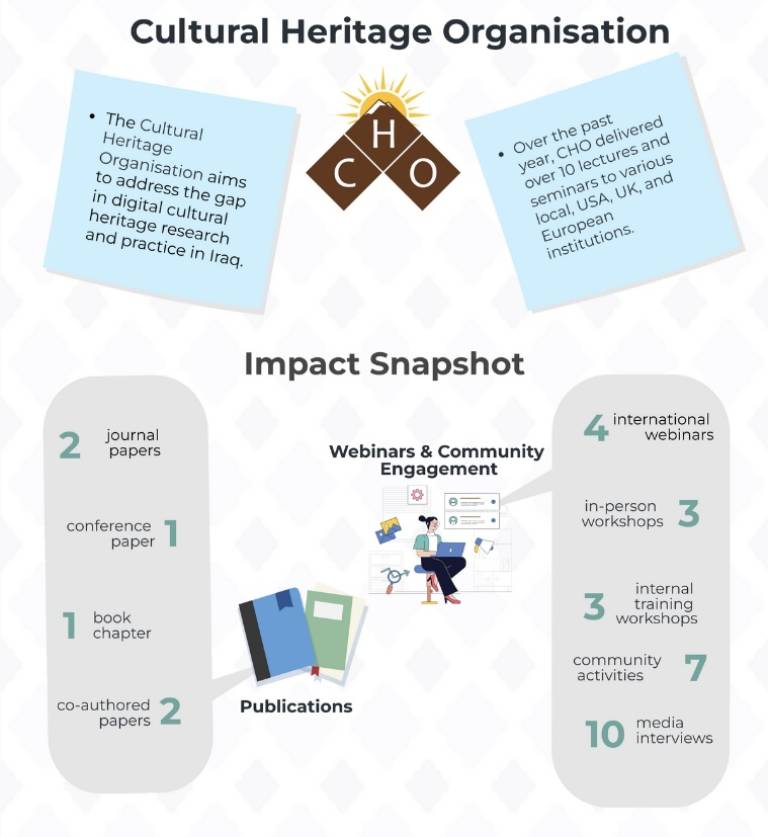
The Kish Project
The Nahrein Network has begun to help the Iraqi State Board of Antiquities and Heritage (SBAH) to recover lost archaeological and historical knowledge of the Babylonian city of Kish, and render it useful to Iraq with open-access, online editions in English, Arabic and other Middle Eastern scripts and languages. As a first step, in collaboration with Oracc.org and UCL’s Advanced Research Computing Centre (ARC), Professor Eleanor Robson and Dr Parsa Daneshmand have started to create an open-access multilingual catalogue and edition of the 600 cuneiform tablets from Kish now housed in the Ashmolean Museum, using ARC’s new cuneiform editor, Nisaba.
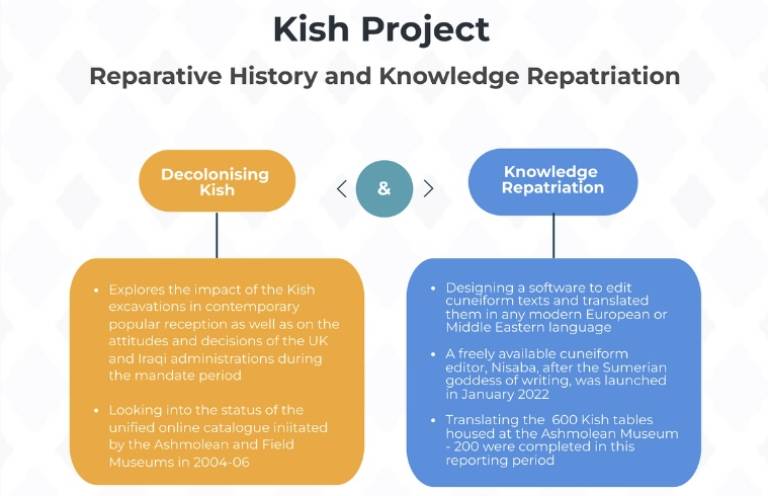
Communications, publicity and social media
The Nahrein Network’s social media channels did exceptionally well during 2021–22. We regularly share and post online. This has strengthened our relationship with our audience. Our engagement and impression levels are consistently high. Followers have increased impressively. Across all platforms — Facebook, Instagram, Twitter, YouTube — we gained over 7,500 followers in one year.
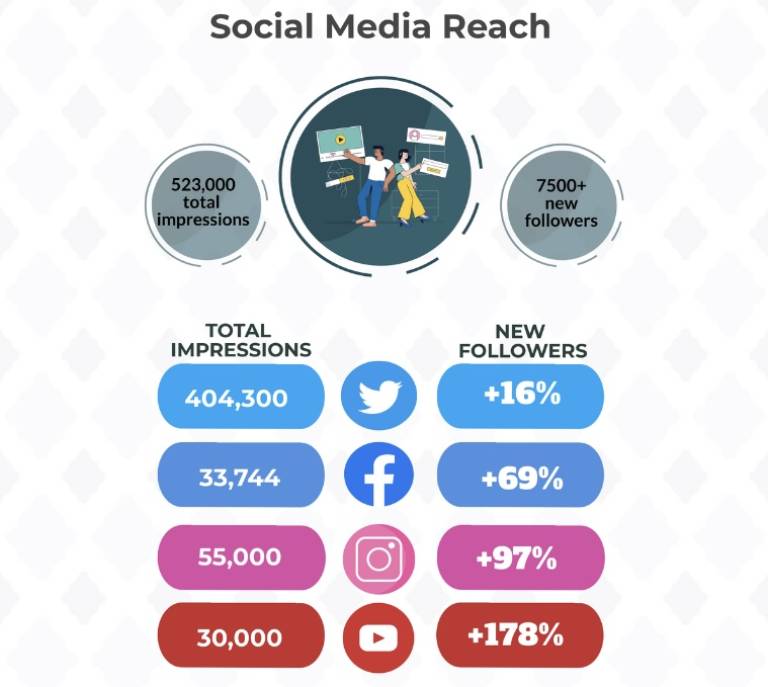
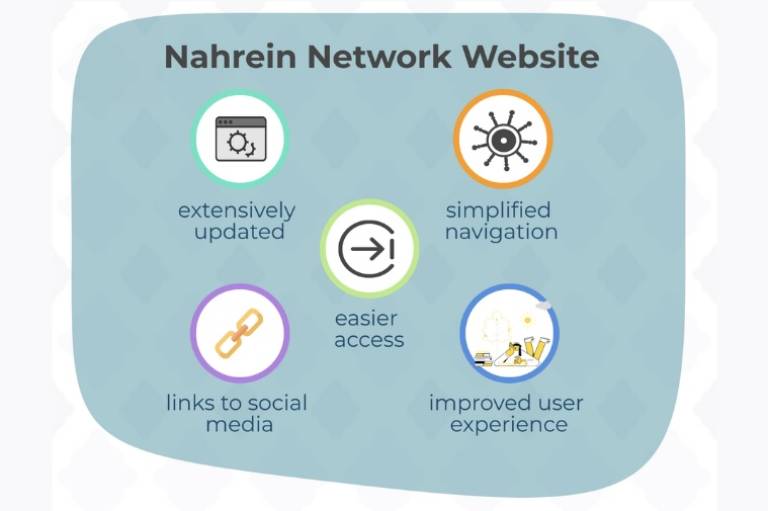
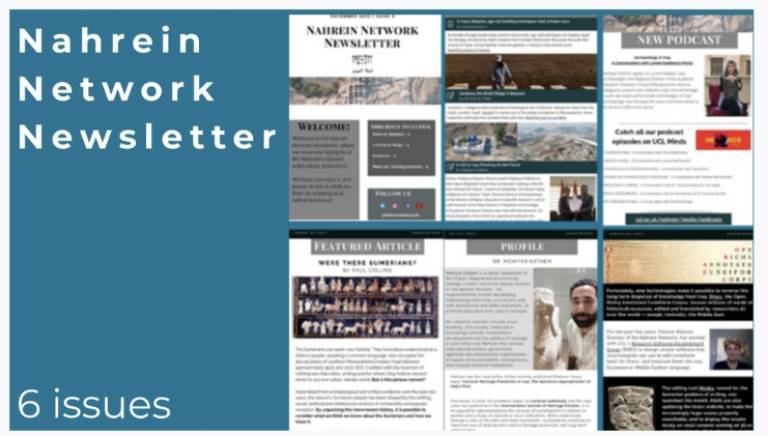
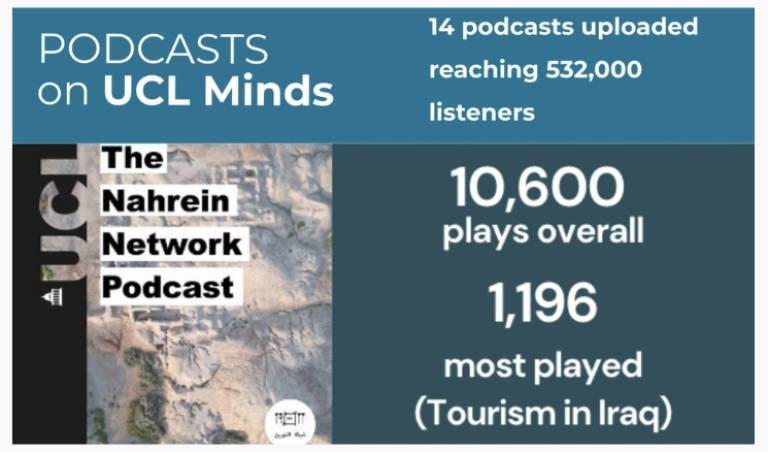
The activities of the Network and its affiliates have also stirred the interest of journalists worldwide. Over the past year, reporters have reached out to Project Investigators, interviewing them and highlighted their contributions in the field via news outlets such as Deutsche Welle, New Lines Magazine, Thomson Reuters Foundation, Smithsonian Magazine amongst others.
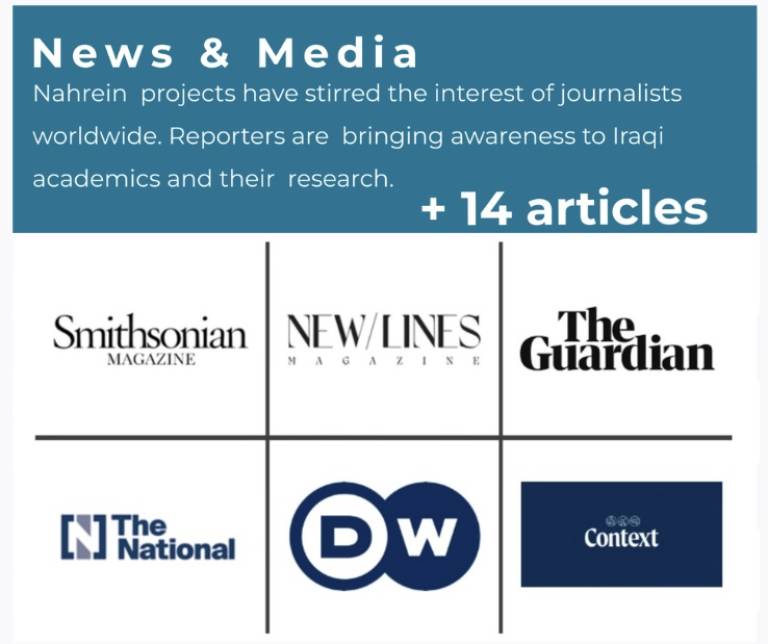
 Close
Close

